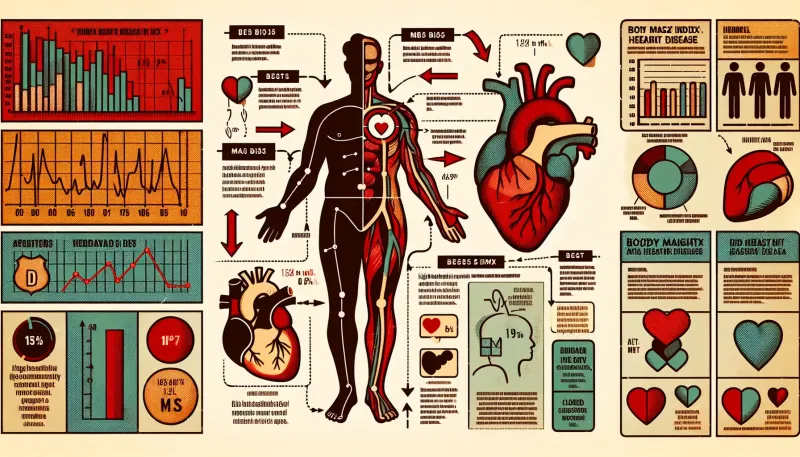The Impact of Body Mass Index on Heart Disease: What You Need to Know

Discover how Body Mass Index (BMI) influences the risk of heart disease. Learn about the relationship between BMI and cardiovascular health and find solutions to mitigate risks.
Body Mass Index (BMI) is a widely used tool to assess an individual's body weight in relation to their height. While often used as a simple measure of overweight and obesity, BMI has significant implications for our health, particularly heart disease. Understanding the connection between Body Mass Index and heart disease is essential for prevention and management of cardiovascular conditions.
Understanding BMI: A Quick Overview
What is BMI?
BMI is calculated by dividing a person's weight in kilograms by the square of their height in meters. The result classifies individuals into various categories: underweight, normal weight, overweight, and obese. Although it does not directly measure body fat, BMI is a useful initial screening tool that helps identify potential weight-related health issues.
BMI Ranges
- Underweight: BMI less than 18.5
- Normal weight: BMI 18.5–24.9
- Overweight: BMI 25–29.9
- Obese: BMI 30 or greater
How BMI Affects Heart Health
The Connection Between BMI and Heart Disease
Research consistently shows a strong correlation between high BMI and the risk of heart disease. Excess body weight can lead to several cardiovascular issues, including hypertension, high cholesterol, and elevated blood sugar levels, which contribute to heart disease.
Impact of High BMI on the Heart
When an individual has a high BMI, their heart must work harder to supply blood to the body's additional mass. This increased effort can lead to:
- Hypertension: High blood pressure forces the heart to work overtime, leading to heart strain and damage over time.
- Hyperlipidemia: Excess body fat increases cholesterol and triglyceride levels, which can clog arteries.
- Insulin Resistance: High BMI is a risk factor for diabetes, which doubles the risk of heart disease.
Reducing Heart Disease Risk through BMI Management
Lifestyle Changes
Maintaining a healthy BMI via balanced eating and regular physical activity can significantly reduce heart disease risk. Here are some solutions:
- Diet: Focus on whole foods, fruits, vegetables, lean proteins, and reduce intake of processed foods, sugar, and saturated fats.
- Exercise: Engage in at least 150 minutes of moderate-intensity aerobic exercise or 75 minutes of high-intensity exercise weekly.
- Weight Management Programs: Consider structured programs or consulting a nutritionist for personalized plans.
Medical Interventions
For individuals struggling to control their BMI, medical interventions such as prescription medications or bariatric surgery might be recommended. Discussing these options with a healthcare provider is crucial for choosing the best course of action.
The Role of Regular Health Check-ups
Regular check-ups with a healthcare provider can help monitor BMI and other heart disease risk factors. Early detection and intervention are key to preventing severe outcomes.
Understanding Your Numbers
Apart from BMI, it's essential to keep track of additional health metrics such as blood pressure, cholesterol, and blood sugar levels. Comprehensive knowledge of these numbers can help create an effective heart-healthy strategy.
Conclusion
The connection between Body Mass Index and heart disease is significant. By understanding this relationship and taking proactive steps to maintain a healthy BMI, individuals can substantially reduce their risk of developing heart disease. Adopting a balanced lifestyle that includes nutritious eating, regular exercise, and routine medical check-ups is critical to heart health and overall well-being.
Always consult healthcare professionals before making any significant changes to your health regime. By staying informed and proactive, you can successfully manage your BMI and safeguard your heart health.



























